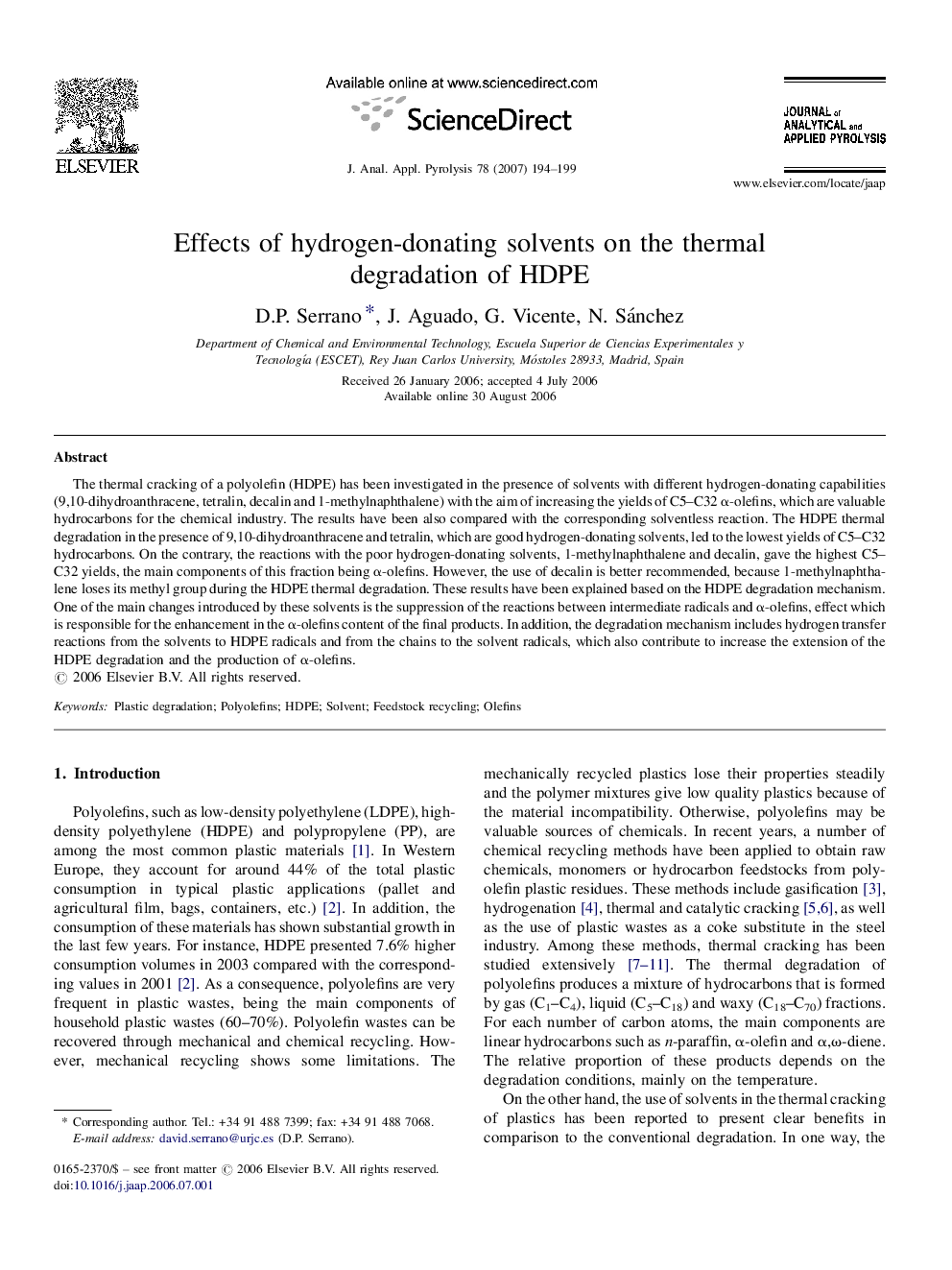| کد مقاله | کد نشریه | سال انتشار | مقاله انگلیسی | نسخه تمام متن |
|---|---|---|---|---|
| 1197911 | 964668 | 2007 | 6 صفحه PDF | دانلود رایگان |

The thermal cracking of a polyolefin (HDPE) has been investigated in the presence of solvents with different hydrogen-donating capabilities (9,10-dihydroanthracene, tetralin, decalin and 1-methylnaphthalene) with the aim of increasing the yields of C5–C32 α-olefins, which are valuable hydrocarbons for the chemical industry. The results have been also compared with the corresponding solventless reaction. The HDPE thermal degradation in the presence of 9,10-dihydroanthracene and tetralin, which are good hydrogen-donating solvents, led to the lowest yields of C5–C32 hydrocarbons. On the contrary, the reactions with the poor hydrogen-donating solvents, 1-methylnaphthalene and decalin, gave the highest C5–C32 yields, the main components of this fraction being α-olefins. However, the use of decalin is better recommended, because 1-methylnaphthalene loses its methyl group during the HDPE thermal degradation. These results have been explained based on the HDPE degradation mechanism. One of the main changes introduced by these solvents is the suppression of the reactions between intermediate radicals and α-olefins, effect which is responsible for the enhancement in the α-olefins content of the final products. In addition, the degradation mechanism includes hydrogen transfer reactions from the solvents to HDPE radicals and from the chains to the solvent radicals, which also contribute to increase the extension of the HDPE degradation and the production of α-olefins.
Journal: Journal of Analytical and Applied Pyrolysis - Volume 78, Issue 1, January 2007, Pages 194–199